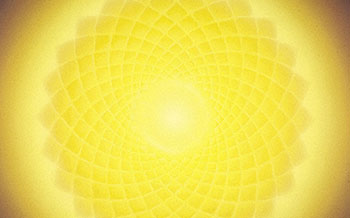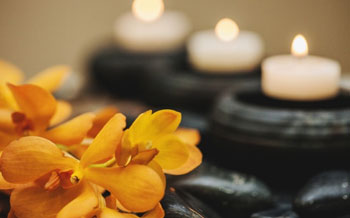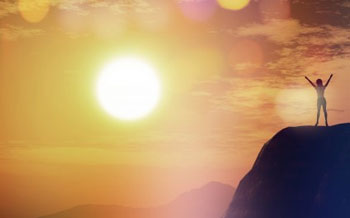In one way or another, we are all called to share the enlightenment we have received along life’s path.
The wisdom we glean from our higher intelligence, from the universities of the world or even from the school of hard knocks is a gift.
Out of our compassion for others we are compelled to share that gift—whether we use it to guide the children in our family or neighborhood, develop a computer program that will help others learn new skills, or heal the sick.
I strive to reach beyond the limitations of the human intellect Pablo Picasso once said, “Computers are useless. They can only give you answers.”
As for the questions that fly beyond the borders of the known—they are what catapult us into the realm of genius.
Cambridge cosmologist Stephen Hawking tells us, “There is no prescribed route to follow to arrive at a new idea. You have to make the intuitive leap.”
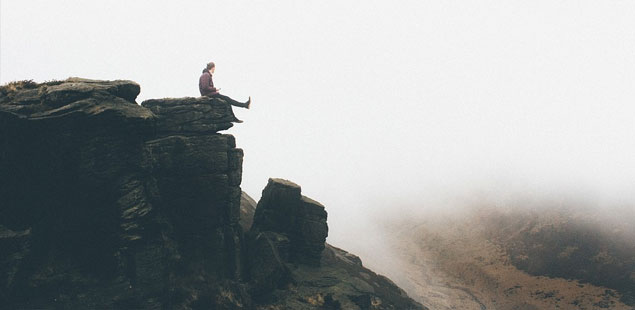
One of the secrets of the crown chakra is that this leap in consciousness does not require a doctorate.
Having a well-developed human intellect does not necessarily qualify us to access the divine intelligence.
In fact, Lao Tzu said, “Without going anywhere, you can know the whole world. Without even opening your window, you can know the ways of Heaven. You see: the further away you go, the less you know.”
By educating ourselves, we can prepare ourselves to receive the impulses of our higher mind and the mind of God in our chosen profession.
But the intellect is not the mind of God. As Ralph Waldo Emerson said, “A man should learn to detect and watch that gleam of light which flashes across his mind from within, more than the lustre of the firmament of bards and sages.”
The purpose of learning is to grasp the divine.
—ABRAHAM ABULAFIA
In fact, our education can even get in the way at times, especially if it is a breeding ground for pride. We must be willing to bypass the intellectual concepts that would reason away God’s concepts.
That’s the modus operandi of the Zen masters and their koans, or riddles.
One Zen master explained, “Those who seek the truth by means of intellect and learning only get further and further away from it. … Not till you abandon all thoughts of seeking for something, not till your mind is motionless as wood or stone, will you be on the right road to the Gate.”
Bill’s story illustrates this point. A computer programmer, Bill says that sometimes the programs he writes are so complicated he hits a mental block.

“Sometimes I think, this is beyond my expertise. I just can’t do it,” he says. “But if I can become centered and put myself in a position of being a chalice for God to work through, then from some place in cosmos—I don’t know where —a thought comes into my head that wasn’t there before.
“It tells me to look at a certain thing. Then that leads to something else that leads to something else—and I arrive at the answer. But in order to get there, I have to get rid of the feeling of being inadequate to the task and open up.”
Tapping into our own higher intelligence can give us the answers we can’t find anywhere else.
Sometimes we’re a little bit like Pope John XXIII. He once joked, “It often happens that I awake at night and begin to think about a serious problem and decide that I must tell the pope about it. Then I wake up completely and remember that I am the pope!”
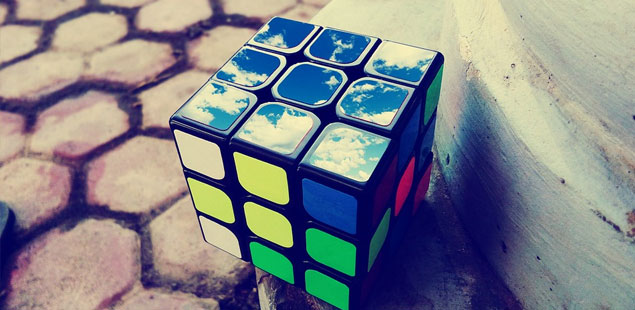
When you wake up in the middle of the night looking for the answer to a problem, don’t forget that you have unlimited access to all the knowledge and creativity you need—if you are prepared to receive it.
Self-Inquiry
- Do I tend to rely too much on my human intellect, or do I try to tap into my higher creative mind?
- When I receive insights and inspiration that can help others, do I share them?
- I take time to slow down, still my mind and spend time in solitude?
One way we can balance our crown chakra and prepare to receive the impulses of the divine intelligence is to slow down and still the outer mind.
Are you able to quiet your mind? Are you easily distracted? Do you occupy your mind with trivialities or fantasies?
To paraphrase the Taoist sage Chuang Tzu, “If you cannot keep your mind still, that is called galloping even while sitting.”
Does your mind gallop even while you’re sitting?
It’s not an uncommon problem. In the eighth-century classic called The Guide to the Bodhisattva’s Way of Life, the poet-monk Shantideva compares the unwieldy mind to a mad elephant.
“It is not possible to observe any discipline without guarding the quivering mind. Unsubdued and overwrought elephants do not effect that damage here which the unrestrained mind, an elephant running wild, does.”
If the sluggish mind is fixed on something else, he says, then all our spiritual practices, even if we engage in them for a long time, “are useless.”
Again, that’s because where our attention goes, there goes our energy.

Our minds and bodies are interconnected. So, to still the mind, we need to care for our body.
It’s easier to concentrate and focus when we get enough sleep and exercise and when we take in foods and substances that strengthen us rather than those that weigh us down (like too much oil) or make us jittery (like too much salt or coffee).
Another way to bring balance to our crown chakra is to make time for meditation and communion with God.
- Take time to study your favorite scriptures or inspirational works.
- Take time to receive the revelations that God wants to give you personally.
- Spend time alone.
Sometimes we fill up our day with so many activities that we forget to listen for the inner voice of wisdom.
When you look over your schedule for the week, pencil in some priority time for yourself before your hours get filled up.
One time I was talking to someone about scheduling a meeting. He said, “We’d better mark it down on our calendars right now, even if it’s three weeks away, because my time gets filled up so fast.” Then he shot me a glance and said, “I do the same thing with my wife.”
He turned a couple pages of his calendar to two months from that time and said, “See, I’m meeting with my wife on the twentieth at 8 p.m. She wanted to make an appointment with me to be sure I would have time set aside to talk to her in the next two months.”
That’s how it is in our society today. We’re moving so fast that we need to make time for the special people in our lives. Two of those special people are you and God.
Sometimes when we get depressed or out of sorts, it’s because we aren’t spending enough time away from the madding crowd.
When the soul is not allowed to follow her natural inclination toward union with God, the yearning for that union becomes a loneliness that even the greatest human relationships cannot fill.
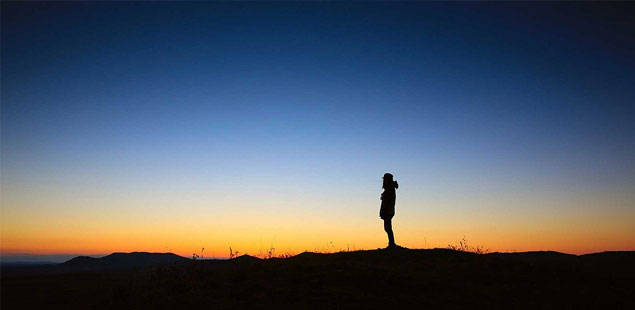
In 1953 and 1954, Thomas Merton was able to devote some special moments to solitude and meditation, and he wrote down his thoughts on solitude and the contemplative life.
Merton discovered that we do not have to be ‘perfect’ for God to share his wisdom with us. “Only solitude,” wrote Merton, “has taught me that I do not have to be a god or an angel to be pleasing to You [God], that I do not have to become a pure intelligence without feeling and without human imperfection before You will listen to my voice. You do not wait for me to become great before You will be with me and hear me and answer me.”
These are the sweet revelations and breakthroughs you can have if you take time to be alone with God.
And don’t always be so quick to share your most intimate sacred experiences with others.
“God does not tell his purest secrets to one who is prepared to reveal them,” observed Merton. “He has secrets which He tells to those who will communicate some idea of them to others. But these secrets are the common property of many. He has other secrets, which cannot be told. The mere desire to tell them makes us incapable of receiving them.”
There are certain spiritual experiences that are holy and need not be shared with others.
Mark Prophet once said, “I think one of the greatest mistakes people make is telling their neighbor or their friends or their companion some of the spiritual experiences that have come to them. A lot of times these companions will say to you, ‘Oh, that’s wonderful! That’s so sweet.’ Then they’ll turn around and say, ‘You know, I think she’s getting a little bit senile!’”
Self-Inquiry
- Do I spend enough time in solitude?
- During my day, do I consciously try to slow down, still my mind and attune to my higher mind?
- I embrace the unity underlying the diversity?
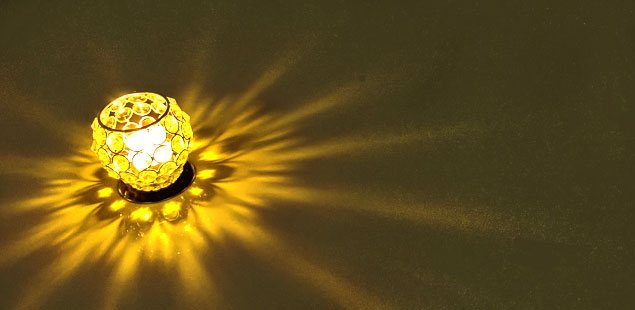
At the level of the crown chakra, the thousand-petaled lotus, we are initiated in the highest wisdom and the highest understanding—the knowledge that there are not two, but one.
There are not two—you and I. There are not two—you and God. There is only one: There is only God. There is only Spirit. There is only Self, with a capital S. The rest is illusion.
This is the mystery that the mystics and adepts have unlocked. We can know it intellectually, but until we understand it with all our heart and soul and mind, we are still living in a sense of duality—two, not one.
As long as we operate from a perspective of duality, we have not yet integrated with the highest energies of the crown chakra.
Rumi expressed this truth in a simple parable about the human ego, which has a hard time identifying with the true Self and with God.
It goes like this. Someone once knocked at the door of his Friend. “Who’s there?” asked the Friend. “It’s me,” came the answer. But the Friend told him to go away because there wasn’t room for raw meat at his table.
After a year, the person returned—completely cooked—and knocked again. “Who is it?” asked the Friend. “You,” came the answer this time. The Friend opened the door, explained there was only room for one in his house—and then invited him to enter.
When we understand that there are not two but just one, then God will share all of himself with us—because we have shared all of ourselves with God.
Instead of being so bound up with everyone, be everyone.
—RUMI
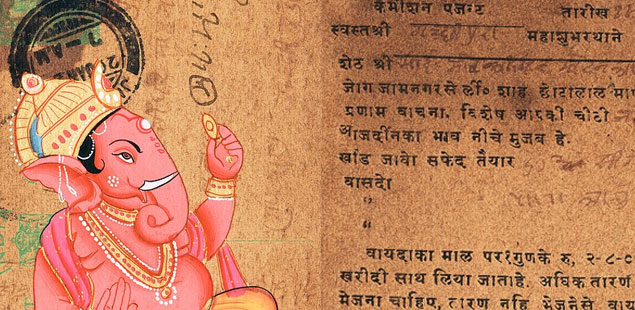 One of the oldest renditions of this mystic theme can be found in the Upanishads, the ancient Hindu scriptures.
One of the oldest renditions of this mystic theme can be found in the Upanishads, the ancient Hindu scriptures.
In a conversation between the young man Nachiketas and Death, Death promises Nachiketas three gifts.
First, the young man asks to be reconciled with his father. The second gift he asks for is the fire that leads to heaven.
For his third gift, he asks Death to explain what happens to a man after death. During their conversation, Death slowly unveils the secret of immortality.
He says: “Some have never heard of the Self, some have heard but cannot find Him. … Logic brings no man to the Self. … That boundless Power, source of every power, manifesting itself as life, entering every heart, living there among the elements, that is Self. … Tell the mind that there is but One.”
Death goes on to explain that Nachiketas should not look for this “Self” outside of himself.
This indwelling Spirit, says Death, is “that Person, no bigger than a thumb, burning like flame without smoke, maker of past and future.” This inmost Self, he reveals, is God—who “lives in the heart.”
The Spirit that dwells within us is described in many of the world’s religions.
In Hindu tradition, the Katha Upanishad also speaks of the “light of the Spirit” that is concealed in the “secret high place of the heart” of all beings.
Buddhists speak of the “germ of Buddhahood” that exists in every living being.
Christian theologian and mystic Meister Eckhart taught that “God’s seed is within us.” There is a part of us, he wrote, that “remains eternally in the Spirit and is divine. … Here God glows and flames without ceasing.”
When we begin to identify less with the outer man, the ego, and more with that Person in the heart—the one who burns “like flame without smoke”—then, and only then, are we on our way to the full flowering of our crown chakra.

As the energies of our crown become more accelerated and balanced, we can sustain an abiding sense of oneness with Spirit while we walk the earth and recognize that Spirit within everyone.
When the energies of the crown are unbalanced, we cannot sustain an awareness of the indwelling Spirit that is our essence.
Or, at the other extreme, we may let our spiritual experiences “go to our head” as we convince ourselves that we are better than others.
Or we may bask in spiritual bliss, in our own spiritual ivory tower, and never come down to earth. But this is not the path of the crown chakra.
The initiation of the crown demands that we let go of our pride, our ego, our aloofness and find a way to make our spirituality practical and all-embracing.
The negative vibrational quality of pride can energetically create a murky, dark corona around the head rather than the brilliant yellow corona of the illumined ones.
This dark energy can obliterate our contact with the higher mind, making it even harder to receive the impulses of the divine through the crown chakra.
[The Yogi] sees himself in the heart of all beings and he sees all beings in his heart.
—THE BHAGAVAD GITA
The rite of passage that we face at the level of the crown chakra also demands that we appreciate others and learn from everyone.
One of the signets of the emerging new spirituality of our era is an appreciation of diversity.
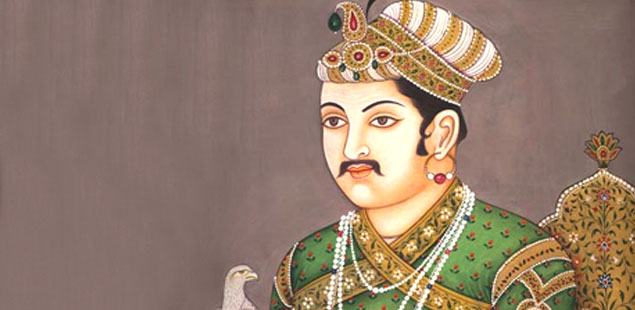
As we move forward into the future, we can learn much from a giant of the past—Akbar the Great, the sixteenth-century Mogul emperor.
Akbar was a great military genius and a wise ruler, the greatest ruler of his time.
But above all, his burning desire was to reconcile the diversity of religious creeds that he saw before him—Christian, Muslim, Hindu, Zoroastrian and Jewish. He was the first monarch in the medieval age to recognize that truth existed in all religions.
How many people of the world, even today, acknowledge that?
Akbar saw the seed of truth in all religions. As a result, he created his own monotheistic, universal religion, called Divine Faith.
His goal was to bring about unity amid diversity. As I’ve studied the mystical paths of the world’s religions, I’ve come to realize that these paths are much, much more alike than they are different.
That’s the way it is with so many things in life. And we can enjoy the diversity—and even benefit from it—while seeking the underlying unity.
Self-Inquiry
- Do I honor diversity and try to learn from it?
- Do I seek to find the common bond that can bring me and others together, or do I dwell on our differences?



